|
During this time of year, there is an increase of auto insurance customers who pay their policy in full. This is primarily because people get their tax returns around this time of year. But the question is, how much do you really save on an auto insurance policy by paying in full? This is what I decided to do for this month's case study. How the study was conducted
Results:
Summary: If there is any way that you can afford to come up with the full six months payment, the least amount that you're going to save is around 10%, while the most you can save can be close to 30%. In my opinion, that's a no-brainer! And this time of year is the perfect time for many of you to do so because of tax refund season. Get an Auto Insurance quote with Lyles Insurance Call me for a Quote Related Blog Articles: Video: Understanding your auto insurance declaration page Video: 6 ways to screw up your auto insurance rate The Basics of an Auto Insurance Policy: Breakdown of each coverage explained
0 Comments
Before you buy mobile home insurance, you need to have a firm grasp of understanding the basic coverages. In this article, I will explain the 7 basic coverages of a mobile home policy. I will also answer some FAQ's about mobile home insurance at the end. 7 Basic Coverages of a Mobile Home Policy 1. Dwelling coverage - This covers your mobile home and any permanently attached structures. This is the main coverage on the policy. When you're selecting a value, only include the value of your home. Do not include the value of land. Depending on the age of your mobile home, dwelling coverage can be insured on either a replacement cost or actual cash value basis. You should insure dwelling coverage with an amount of insurance at least equal to the market value of the home including all attached additions. 2. Other structures coverage - This provides coverage for unattached structure's which includes things like hot tubs, swimming pools, gazebos, utility sheds, docks, etc. Basically,any structure that is not permanent permanently attached to the home should be included in the value of other structures coverage. 3. Personal property coverage - This is coverage for losses to household items. Most companies Insure personal property coverage on an actual cash value basis. But some companies will let you upgrade to placement cost coverage on personal property for an additional premium. 4. Personal liability coverage - This covers you if someone else gets hurt or has property damage due to your negligence. This also includes legal expenses for your defense. Examples of this would be: if your dog bit somebody, if someone slipped on ice and fell on your property, the neighbors child gets injured playing in your backyard... things like that. Keep in mind that most companies have some key exclusions for this coverage. For example, most companies will not cover injuries resulting from the use of motor vehicles. And also, some company severely limit the amount of liability coverage offered if you have a swimming pool. 5. Medical payments coverage - Pays reasonable medical expenses for accidents on your property that caused injury to someone else. These payments are usually maxed out at low levels (usually $500-1000). They are basically designed as a settlement attempt to try to make someone "go away" that may otherwise file a substantially higher claim/lawsuit against you. 6. Damage to property of others coverage - Covers property that's owned by someone else that you damage. This coverage is usually offered at low amounts as well. 7. Additional living expense coverage - If you have a covered loss to your mobile home that makes it unlivable. This coverage will pay for additional living expenses such as hotel, food etc. during the time that you're unable to live in your mobile home. FAQ'S I've never bought mobile home insurance before. Where do I start? Finding affordable mobile home insurance is not as difficult as you may think. The key to getting a great rate is to shop around with different mobile home insurance companies. The more companies you quote with, the better chance you have at getting a lower rate. The most efficient way to do this is to get a quote with an independent agent, and let them do the shopping around for you. What types of mobile homes can be insured? Any mobile home, manufactured home, modular home, or fifth wheel campers that are used as a permanent residence, and has permanently attached features to it. Can I insure my mobile home on a replacement cost basis? With most companies (not all), a mobile home 10 years or newer can be insured on a replacement cost basis. As long as you keep continuous coverage, most companies will allow you to insure the home up until the 16th year. At that time, the coverage reverts to actual cash value basis. I am financing my mobile home and need to keep insurance on it. How much coverage do I need? Your bank will tell you the minimum coverage you need to carry. But you need to ask yourself, is that enough coverage? In the event of a total loss, will this amount be enough to start from scratch? In many cases it is not, and you need to raise coverage accordingly. I cannot find mobile home insurance because of previous claims I have filed. Can you help me? In most cases, Yes. Some of the companies I carry accept mobile home insurance for homes that other companies will not insure. I can not insure every mobile home, but I can try with some companies that are a little more forgiving about claims. Get an Online Mobile Home Insurance Quote Call me for a Quote Related Blog Articles: Understanding the Basics of an Ohio Mobile Home Insurance Policy What happens when you need to have an SR22 state filing but you don't have a vehicle to insure with regular auto insurance?
You will then have to take out what is known as a named operator policy ( a.k.a. non-owners policy). You simply attach the SR22 filing to this policy instead of a regular auto insurance policy. What's the difference between non-owners named operator policy and regular auto insurance? The main difference is that regular auto insurance primarily covers the vehicle, whereas a non-owners policy covers the driver. This means that coverage only applies when the person on the policy is driving, no one else! Also, with the non-owners named operator policy, there is no coverage on the vehicle you are driving. The only coverage offered on a named operator's policy is liability coverage, medical payments coverage and uninsured motorist coverage. How does a named operator policy compare with regular auto insurance as far as cost? A named operator is cheaper than an auto insurance policy (and sometimes much cheaper, depending on your state). But understand why that is..... There is much less coverage. What happens if I purchase a named operator's policy and then borrow a friends car and pull out in front of another car, and total both cars? In this case a non-owners policy would cover the vehicle you hit and cover any injuries of people who were in the vehicle up to the liability limits of your policy. However, there is no coverage on your friends car that you borrowed. So you had best hope your friend is carrying collision coverage on their vehicle! Does a named operator policy cover me driving my own vehicle? No! There is no coverage on owned vehicles with a named operator policy. If you own a vehicle, you need a regular auto insurance policy instead. Some states have what is called a broad form named driver policy, which is similar to a named operator policy. Broad form policies do cover owned vehicles, but they have big limitations. I wouldn't recommend it if you own a vehicle. What happens if I purchase a named operator policy and then buy a vehicle later on? Auto insurance companies will handle it one of two ways. Some companies will simply add the vehicle on your policy and automatically convert the policy to a regular auto insurance policy. Other companies will have you cancel the named operator policy and simply rewrite it as a regular auto insurance policy. Either way, it's very simple to do and only takes minutes to complete. How do I find the cheapest named operator policy rate? The only way to find the lowest rate is to shop around with several companies. There's no one company that is the cheapest for everyone. The most efficient way to shop around is through an independent insurance agent. That way, the agent does all the shopping around for you. Get a Named Operator Quote with Lyles Insurance Call me for a Quote Related Blog Articles: Video: Auto Insurance for Drivers Who Don't Own a Vehicle Understanding named operator (non-owner) auto insurance policies and how to get the best rate Where can I buy an out-of-state SR22 auto insurance filing? What is a Named Operator (aka non-owner) Auto Insurance Policy? 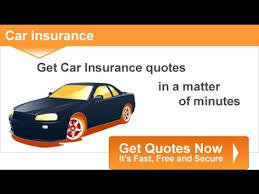 When done correctly, getting an online auto insurance quote is the fastest and most efficient way to get the best coverage for the best rate . When done incorrectly, you start to fall into traps as far as not having the right coverage, having coverage that you don't need, or paying more for coverage than what you should be paying. Where you get auto insurance quotes from is also very important, as you will soon see. I have created a list of the eight biggest mistakes that I see most people make when they get a quote online. As long as you don't fall into any of the following eight pitfalls, you will be good to go far as getting the right coverage at the right price. All while spending the least amount of time shopping around for quotes. 1. Not understanding the basic coverages of an auto insurance policy. It is essential that you understand the five key parts components of an auto insurance policy. Those are: liability, uninsured motorist, medical payments, comprehensive coverage, and collision coverage. If you would like to learn more about the basics of an auto insurance policy, feel free to listen to my short audio blog. Getting a quote without understand these 5 components is like throwing darts blindfolded! 2. Not asking questions when you're not sure about something. Don't just try to wing it! If you don't understand something, there's plenty of available help out there. Don't be afraid to do some quick online research, or call an agent and simply ask. By just winging it, you're missing out on important knowledge you need to make an informed decision. 3. Skimping on the cheapest and most important coverages. People tend to skimp on uncontrollable risks while at the same time spending a little extra on controlled risks. When in fact they should be doing the exact opposite. To learn more about why that is, have a quick look at my blog post about skimping on auto insurance coverages. Bottom line is don't skimp on uncontrollable risks such as liability coverage and UIM coverage. 4. Getting an auto insurance quote from a customer service rep. Many people simply like to look up a phone number online and then get a quote over the phone. And that's fine to do. But make sure you're speaking with an insurance agent and not a customer service rep. It's not that CSR's are bad, it just that they follow a sales script, and must steer you towards their company's best interest, not yours. I discourage you from doing that and suggest you go with an insurance agent instead. 5. Quoting with one company at a time. Although there's nothing wrong with this, it is very time consuming. It's very inefficient as far as finding the lowest rate. A better strategy is to get a quote with an independent agent who carries multiple companies that he/she can quote you with all at once. That way, you only have to get a quote once, and the agent will be happy to do the shopping around for you. 6. Getting a quote from a lead generation site. You may stumble upon an auto insurance website that allows you to get an online auto insurance quote. But yet nowhere on their website are any names, addresses or phone numbers listed. Watch out for those types of websites, as most all of them don't sell auto insurance at all. Their goal is to simply sell your information to other insurance agents. And in many cases, a lot of agents! While this method may be effective as far as finding new the lowest rate, it will also cause your phone to blow up! Any an insurance agent worth their salt will at least put their name, address, and phone number on their website. If you don't see it, run for the hills! 7. Failing to include all drivers that should be listed on the auto insurance policy. If someone of driving age lives with you..... Or, anyone who does not live with you but has regular access to your vehicle, they need to be listed on your auto insurance policy. I've seen a lot of people run into big trouble with this. If your teenage driver lives with you and is not an insured driver on your policy, and he/she wrecks your car, you're screwed! 8. Failing to disclose everything about your driving record, accident and claims history. Companies are going to run your motor vehicle report and run your insurance history report (known as CLUE). Most all companies run these reports before you actually buy the policy and put it in force. A few companies may wait a couple days, but eventually they will run those reports and find out. You're much better off in the long run simply listing anything that you're aware of on your driving record or accident report or insurance claims. Summary: By avoiding these 8 pitfalls, you will be able to find the right coverage for you, at an affordable price, spending the least amount of time and effort in doing so. Get an Auto Insurance quote with Lyles Insurance Call me for a Quote Related Blog Articles: Video: How Your Driving Record Affects Auto Insurance Rates Video: 6 ways to screw up your auto insurance rate 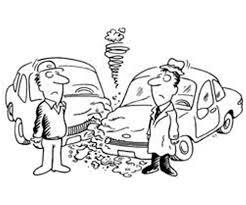 What are the major factors affecting auto insurance premiums? There are a lot of factors that go into determining your auto insurance rate. Many of them are obvious. But there are a few factors that may surprise you. So I've created a list of the 10 biggest factors that affect your auto insurance rate. These factors are listed in no particular order, as auto insurance companies weigh all of these factors differently. And this is not an all-inclusive list either. But these are the 10 biggest factors that most auto insurance companies look at when determining an auto insurance rates:
Get an auto insurance quote with Lyles Insurance Call me for a Quote Related Blog Articles: Video: 6 ways to screw up your auto insurance rate Video: Progressive Snapshot: How I saved 11% on my auto insurance The Basics of an Auto Insurance Policy: Breakdown of each coverage explained |
Author
Dan Lyles is an Independent Insurance Agent serving Ohio, Indiana, Michigan, Pennsylvania, Virginia and West Virginia.. Archives
March 2021
Categories
All
|

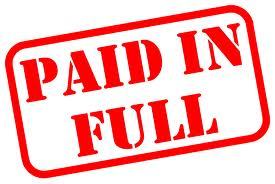
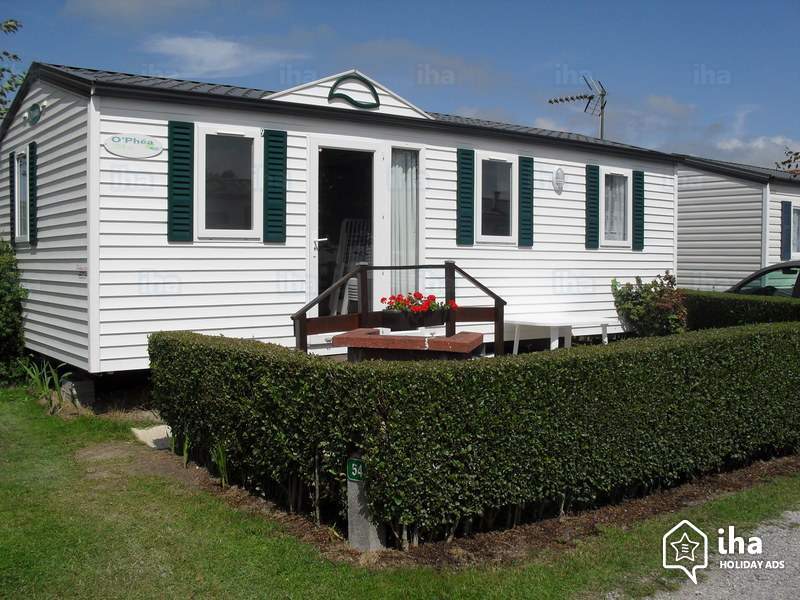
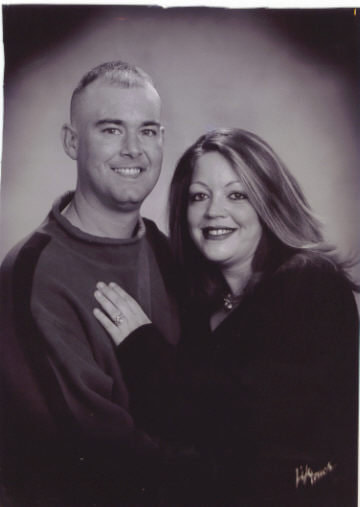
 RSS Feed
RSS Feed